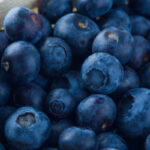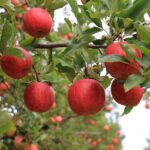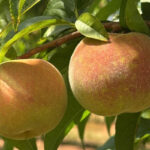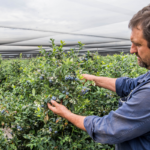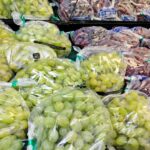Strong uptake for Tangold mandarins, claims Freshmax Australia

The group now has its first significant semi-commercial volumes of the Tangold-branded mandarin, known elsewhere as Tango, and will also have export programs in several overseas markets.
While the Australian citrus season is running a bit later this year, Freshmax Australia expects much greater volumes year-on-year of its proprietary varieties Sumo Citrus, Gold Nugget and Tangold.
Sumo Citrus, owned by Suntreat Packing & Shipping Co. in California, could be described as "ugly" but has found a point of difference at retail.
The same goes for Gold Nugget from the University of California, which also developed the Tango, a seedless mandarin similar to W.Murcott/Afourer.
"The Sumo citrus season has been underway for around three weeks now. We’ve had probably our best year on record for general quality," says Freshmax Australia representative for intellectual property and commercialization, Andrew Maughan.
"The last three or four years had quite wet conditions in the winter, but we’ve had very dry conditions in general, especially throughout June and most of July, so we’ve had really good packouts.
"We're on track to practically 100% growth on the 2016 season; they’re being ranged nationally through Woolworths supermarkets and we finished up a full national promotion with them last week."
While Maughan says Gold Nugget is "cosmetically challenged" pebbly skin texture, this feature along with its great taste and seedlessness have made it popular.
"The retailers have embraced the point of difference and it does allow you to be ranging alongside other citrus - we're seeing a pretty big jump in Gold Nugget numbers this year where we could get something between 75-100% growth in volume again," he says.
"It does have some challenges around managing it post-harvest from a handling perspective, which we’re continually learning and improving upon.
"But it's very sweet, lower acid and we think it’s going to have a good position in the domestic market. It's a late season variety in that it’s capable of being in the market right through until November for us."
He adds Freshmax Australia will be exporting Sumo Citrus and Gold Nugget this year.
"For Sumo Citrus there’s export being done this year following up on trials we did last year – there’ll be some product going to China, some to the U.K., and a little bit of product into northern Asia into Japan.
"Gold Nugget’s probably going to be more concentrated in Asia at this point in time with small volumes. It’ll be just trying to establish a position.
"We see that as domestic production grows export volumes need to increase, and it’ll be done in collaboration with the Californian licensors Suntreat, and I see some really good opportunities working with them going forward."
Going for Tangold
While Sumo Citrus and Gold Nuggets have been able to find their niche positions in Australian supermarket shelves, it is perhaps the up-and-comer Tangold that has the biggest future ahead.
"I think Tangold will be a once-in-a-lifetime variety. It will be a commercially viable and successful variety for many generations," says Maughan.
He highlights the harvest commenced in the first week of August, and is very upbeat for its prospects at home and in Northern Hemisphere markets in 2017.
"These are really the first significant semi-commercial volumes of the variety; we're really happy with the quality, and it appears to be a little bit earlier in maturity, seven to 10 days earlier than the standard W. Murcott or Afourer," he says.
"Product is going to be ranged with both the main retailers in Australia, plus we’re going to have export programs underway this year where we’ll be sending product to North America, to Japan, a little bit to China, Southeast Asia and also the U.K.
"Export is going to be a really important part of the program for Tangold, and we see potential in the variety."
In addition, he has seen the cultivar is "quite easy to grow" with precocious growth of the trees achieving very good production.
"And best of all it's seedless. The Australian market has not been exposed to very low seed or seedless programs in easy peel," he says.
"Around the world it’s become non-negotiable in many markets to have seedless fruit, and our strong opinion is that Australia will follow suit domestically."
With the Tango mandarin grown also in countries like the United States, Spain, South Africa, Chile and Peru, Maughan feels the Australian-grown "Tangolds" will be a good complement to global supply.
"They [importers] understand the traits and they know the variety well. – they know that they can achieve their customers’ quite challenging seed specifications with Tangold, and it's hard for them at times with standard lines of W. Murcott or Afourer to achieve seed count requirements with customers."
One of Australia's greatest advantages in fruit exports is its proximity to booming Asian markets, but what about the long distances to Europe or the United States?
"Tangold has a great shelf life capability. Sure it’s far from perfect to have a 30-35 day voyage into the EU or the U.K. - it's certainly a long time. So it’s driven around certain time slots and market windows when there’s demand for Australian product in such long-haul shipments.
"You have to be mindful of having the right fruit quality to be shipping that far. You have to have relatively high acid in the fruit to give you the shelf life, and when the fruit arrives to have the desirable eating characteristics.
"You can't send the late-harvest, lower acid kind of fruit which is fine for the domestic market or short-haul."
Geographic dispersion
Maughan says Tangold has been or is being planted in a wide range of growing regions, from the Atherton Tableland in Far North Queensland down to the Riverina in New South Wales, and Sunraysia and Cobram in Victoria. 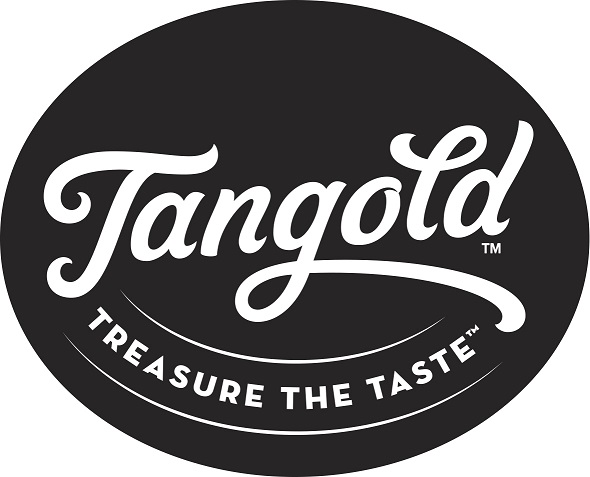
"We think we will have Tangold available in store domestically from mid-May through till possibly the end of November - so we could have a six-month window," he says.
"That's a long period of time when we’ve got this product on the shelf - great for achieving consumer recognition and run promotional programs."
Maughan adds the group will be planting Tangold on its own stonefruit property in Swan Hill, Victoria next year, and has a joint venture with a longstanding partner in Cobram.
"So we will have significant production going in over the next few years in Swan Hill to complement our own production of stonefruit and citrus," he says.
"In Tangold we've jointly invested in developments in Cobram with the first plantings last spring and the final plantings again this spring. That’s the direction of ours to invest with some of our core growers we’ve been working with for quite a period of time," he says, adding the same producer is also growing Freshmax's IP apple variety Modi.
He adds the group has a similar scheme in the Atherton Tableland with the company's avocado and banana growers set to produce Tangold as well.
"We're continually looking, and we’re partnering with some of our banana and avocado growers up in the Atherton Tableland to do production of Tan-gold. We’ll have about 40 hectares in the next 12 months.
"It has a very unique window with opportunities to be early in the market. It’ll be available in mid-May in the marketplace, which is a whole 8-10 weeks earlier than the southern Australian production.
"The uptake [Australia-wide] of the variety has been as good if not better than expected. There’s going to be significant commercial volumes of Tan-gold in the coming years and it’s exciting times to see where this variety’s going to take us."
Seedless lemons?
With so much attention paid generally to seedless characteristics in easy peelers, we asked Maughan what he thought of developments in seedless lemons.
While Freshmax Australia doesn't have any exclusive rights or licenses for these varieties, the executive clarifies some of its partners do have such cultivars planted.
"We've been actively encouraging people if they are interested in planting lemons to go down the seedless lemon route. We think that the future it’ll be a requirement to be seedless in lemons.
But with such strong demand for lemons overall, he says there hasn't been so much pressure for fruit to have the seedless trait.
"Most of the new production that has gone on in Australia I would say has been these seedless Eureka varieties, and I think in time as market volumes increase there will be a shift towards more awareness of the seedlessness of lemons.
"Once supply is in line with demand, or exceeding demand – although hopefully not – I would imagine that seedless, while it may not get a premium, it will get preference of supply."




















